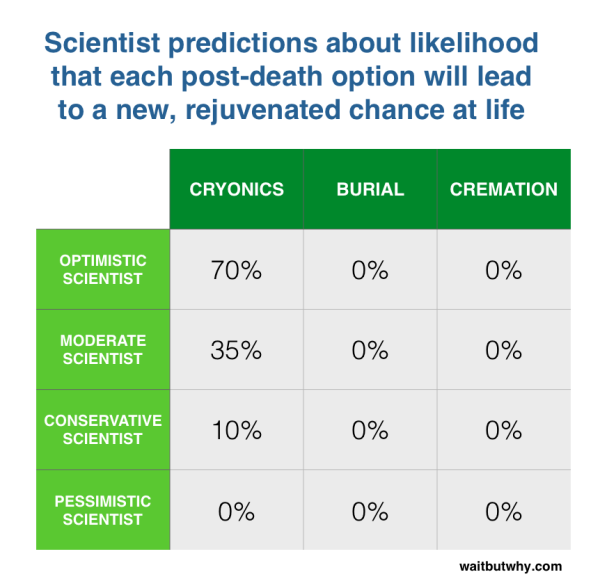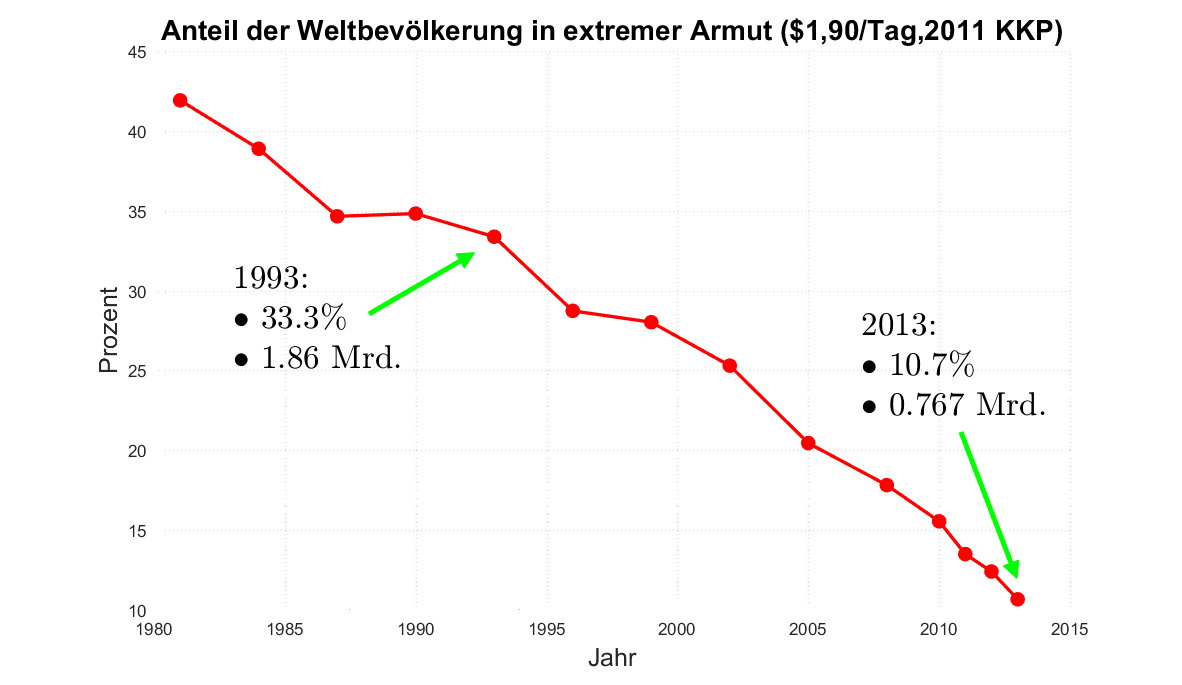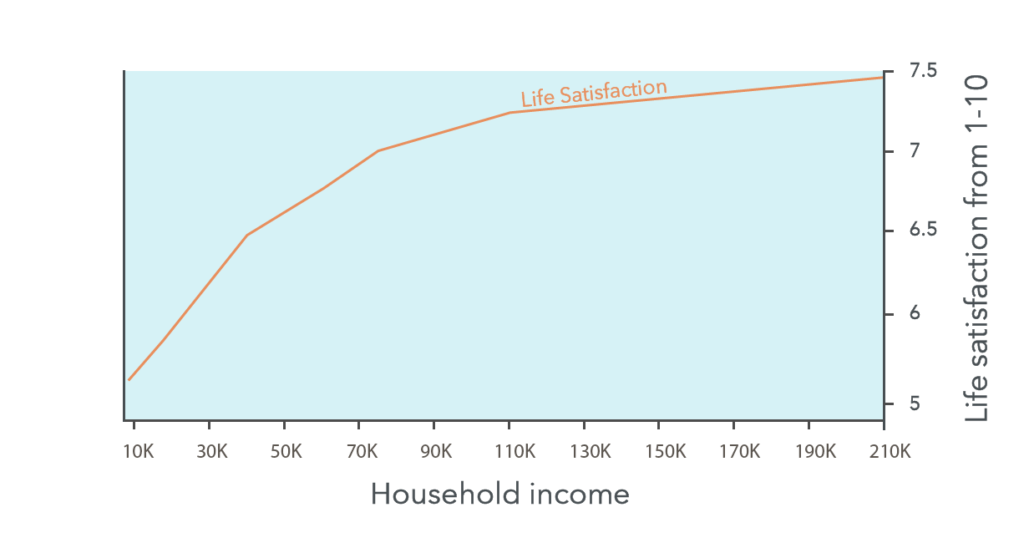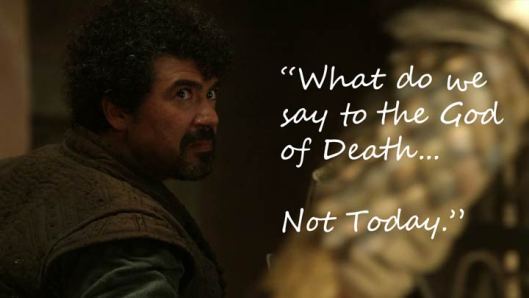Part I was about the prospect of an Eternal Blissful Life, and what it means to “believe” in it. Part II elaborated on my philosophy of life – the three thoughts that can give your mind peace, and the three calls to action that can give your life meaning.
Here in Part III, I’ll clear up some potential sources of confusion or misunderstanding. I’ll also add some additional thoughts that didn’t fit elsewhere. The sections of this article are self-contained, so you can skip any that aren’t relevant to you.
Shouldn’t you live “here and now”, rather than wait for the future?
I get that question a lot. Variations of this question include:
“Aren’t you afraid of missing out on life by chasing something that’s impossible?”
“Shouldn’t you focus on enjoying your Current Life?”
My answer is emphatic. Yes, you should absolutely live in the present and enjoy your Current Life! But this doesn’t contradict my central thesis. In fact, the whole point of my philosophy is that believing in an Eternal Blissful Life makes your Current Life more beautiful and meaningful. Looking forward to the future and enjoying the present aren’t mutually exclusive. There’s a reason people say “anticipation is half the pleasure”. Do you enjoy your life any less when you have an amazing vacation to look forward? Of course not! If anything, the joy of anticipation adds flavor to your days. And looking forward to an Eternal Blissful Life has the same positive effects.
Nor am I afraid of missing out on life by “wasting” time being healthy, taking care of myself and the environment, and trying to be the best possible world citizen. I want my current existence to be fulfilling and happy; and practically everything I’m doing right now directly contributes to that. In my view, the path to a happy life and path to an Eternal Blissful Life are exactly the same.
Sure, I do miss out on a few things. Some believe that a lack of strictness can be beneficial; that allowing yourself to occasionally smoke a cigarette, eat an unhealthy meal, or spend all night drinking with friends is what makes life worth living. The truth is, I sometimes do indulge in these things. But ever since I drastically cut down on them and improved my self-discipline, my life has been much more enjoyable. If believing in an Eternal Blissful Life means “missing out” on tobacco, I think it’s worth it! I also think it’s worth it to forego heavily processed burgers and use the money on cryonics instead. It’s what I plan to do myself as soon as I finish my studies and begin work. It’s worth it because there’s so much to gain – centuries, or even millennia, of extended and blissful life.
Let’s say you choose to embrace a similar philosophy to mine, but for some reason end up on your deathbed with no looming promise of an Eternal Blissful Life. (click me) If in this position you find yourself thinking, “I wish I didn’t waste my days chasing the illusion of an Eternal Blissful Life”, then you haven’t properly understood my philosophy. If you still need to be disabused of this notion, try rereading Part II – especially call to action #3. I’ve spent a long time thinking about how I want to lead my life, and I’m convinced that I won’t regret living my life in this way – even if it turns out to be a false hope.
You say I’m inevitably headed for an amazing Eternal Blissful Life. Does that mean I can be lazy and irresponsible in my Current Life?
Absolutely not! Recall for a moment that 17th-century English peasant planning to emigrate to America. He can’t afford to be lazy. He needs to organize a million things in order for his trip to go ahead without a hitch. His emigration to the New World isn’t a guaranteed event that he can wait passively for; he needs to actively work towards it, otherwise it might not happen. It’s the same story with your Eternal Blissful Life.
If you think believing in an Eternal Blissful Life is an excuse to be lazy, I suggest rereading the calls to action in Part II. The key goal is to live a Current Life that’s healthy, fulfilled, and therefore as long as possible. You should develop the sense of moral responsibility necessary to improve the world and make life better for everyone around you. I, for one, interpret the prospect of an Eternal Blissful Life in such a way that it makes me want to “make my Future Self proud”.
Even though you’ll be able to write your novel or travel the world in your Eternal Blissful Life, you should absolutely focus on these things in your Current Life, too. Whatever makes your life more beautiful and interesting should remain at the core of your everyday existence.
Isn’t it stupid to base your whole raison d’être on something as implausible as an Eternal Blissful Life?
Let me ask you this: isn’t the English peasant equally foolish to believe he’ll end up with an amazing new life in America? Is a cancer patient foolish to believe her chemotherapy will be effective? Is hope irrational?
One thing I’d like to be clear about is that I’m not saying we’re all guaranteed an Eternal Blissful Life. My belief in an Eternal Blissful Life isn’t like my belief in gravity or in atomic structure. There’s a big difference between confidence in a scientific theory and confidence in a future possibility. Elon Musk, for example, is confident that we’ll start building a colony on Mars within the next 20 years. Although scientists can’t “prove” this in the same way they can prove the chemical composition of rocket fuel, that doesn’t make Musk’s belief any less worthy of serious consideration.
If I were forced to put a number on how likely it is that a healthy young person, living in a western country in 2018, will enjoy an Eternal Blissful Life – I’d say “probably somewhere between 5% and 95%”. And that answer is more than enough for me to be satisfied.
I simply think it’s reasonable to assume that many of us will be vastly better off in the future. Our lives will be much longer, and most of our problems will be solved. This plausible vision of the future is encapsulated in the term “Eternal Blissful Life”.
So is it foolish to believe in an Eternal Blissful Life and base my life philosophy on it? Perhaps. And while we’re at it – it was equally foolish of slaves to imagine a world free from slavery. Of medical researchers to think they could rid the world of polio. Of astronauts to think they could set foot on the moon. The world seems to be full of foolish people pursuing implausible aims. They should all just give up and be content with what they have!
But in all seriousness, these are my justifications for basing my life on an uncertain future:
- It makes me happy
- It motivates me to do all sorts of things that enrich my life – things I might not have done otherwise. (Becoming a vegetarian, for instance, and getting involved in Effective Altruism).
- I’m not harming anyone (including myself) by holding this belief. Quite the contrary!
- Practically every action that stems from my beliefs is an action I think we should all be taking regardless. The promise of an Eternal Blissful Life simply motivates me to take these actions. Any additional things I do (e.g. reading about trends in futuristic technologies) are pleasurable enough to count as a hobby. To the train enthusiast, model train sets are inherently worthwhile – and it’s the same for all my research and writing on this subject. I enjoy it!
Earlier I made the analogy between traditional religious faith, and my own faith in an Eternal Blissful Life. There’s one massive difference. I’m not burying my head under the sand in the way many religious people do. I don’t have to refute any scientific evidence, contradict our current understanding of astrophysics, or blindly believe that our “souls” can leave our bodies after death and then somehow coalesce again into a form that’s recognizably “us”. I’m not limiting my personal growth through fixation on dogma. And I don’t really mind if people disagree with me. It’s very important to me to have a realistic worldview – to believe things that are within the realm of scientific plausibility.
It’s perfectly conceivable that we’ll eventually experience an Eternal Blissful Life. And I’m by no means the only one who has such optimism. Humanity has been more or less continually advancing ever since it came into being – not only technologically but also socially and politically. The world we enjoy today would have been unimaginable to the brightest minds of two hundred years ago. And there’s no reason to think this trend won’t continue. Many experts believe, for example, that the Singularity will occur before the end of this century. To refresh yourself on all the reasons to be optimistic about the future, check out the appendix.
Even the healthiest existence will only prolong my life by ten or twenty years at best. And as a lone individual, there’s very little I can do to turn an Eternal Blissful Life into a reality. So why bother?
True – even if you try extremely hard, and do everything to increase your chances of having an Eternal Blissful Life, it will only get you so far. But to me, it’s also a matter of effort versus expected value. Let’s say you can increase your chances of an Eternal Blissful Life from 5% to 10% by contributing to society and living a healthy life. Let’s further assume that your Eternal Blissful Life would encompass 50,000 wonderful years. In this case, your 5% increase in probability translates to an enormous increase in the potential length and value of your life. Since the stakes are so high, increasing your chances even slightly is absolutely worth it.
Does believing in an Eternal Blissful Life require blind optimism?
No. Simply being optimistic won’t get you anywhere unless you do something about it. Doing nothing, and ignoring all the world’s problems, definitely isn’t the path to an Eternal Blissful Life. Don’t forget the three calls to action!
I do believe that “everything will be OK in the end” – but I’m keenly aware that many things are not OK in the world at the moment. For example:
-
- There are still almost a billion people living in extreme poverty.
- Even in a well-off country like the USA, 6.9% (16 million) of the adult population lives with major depression.
- There are a bunch of existential risks that need to be taken very seriously. For example, Elon Musk, Stephen Hawking, and many others believe that advanced artificial intelligence, which might be developed this century, will lead either lead to “humanity solving all its problems” or humanity going extinct. Nuclear war, extreme climate change, or advanced bio- and nanotechnology also have the potential to pose existential risks.
Here is an article by 80,000 Hours about the world’s most pressing problems – the ones where progress can be made relatively easily. These problems are the “low-hanging fruit” of global progress, and should be tackled first.
The bottom line is this: Let’s be optimistic, but retain our realism and acknowledge that there’s still a lot we need to do.
Believing in an Eternal Blissful Life means having faith in humanity.
People readily point out how selfish and evil humans, and how ruthlessly we destroy our planet. Pessimistic news headlines get clicks, because there’s plenty of appetite for negativity and cynicism. And although it’s certainly true that humans are flawed, I believe it’s time we balanced the bad news with a more positive appraisal.
Labeling humanity as “evil” ignores the extent to which our species has actually improved over time. Though we still suffer from regular and dramatic aberrations, the general trend for the past few thousand years has been an upward one. Any reading of history supports this view. Few are nostalgic for the good old days of slavery, plague, and lawlessness. Around 2,000 years ago the Carthaginians were sacrificing their own children to placate the gods. And until recently, it was widely considered pleasant to watch the execution of a human being. People would take their children to these “events”, much as we might go to the zoo or skating rink today. Immanuel Kant, one of the most enlightened philosophers of his time, believed that women had no place in civic society. And how many people cared about the welfare of animals 50 years ago? There are numerous examples of vast human progress that pessimists simply take for granted.
While humans can be greedy and selfish at times, we can also be remarkably generous and selfless at other times. There are countless examples of people sacrificing everything for others.
Steven Pinker posits that we all have five inner demons: predatory or practical violence, dominance, revenge, sadism and ideology. But at the same time, we also have four internal strengths – the “better angels of our nature” – namely empathy, self-control, moral sense, and reason.
Given the wrong circumstances (e.g. anarchy, cults, a bad upbringing) our inner demons will often win. But in the right circumsntaces (e.g. a state of social order, a loving family, a good upbringing) our better angels will rise to the fore and determine how we behave. And it seems to me that the world is steadily moving towards a state that fosters our better angels and discourages our demons.
Being overly pessimistic about human nature is counterproductive. Pessimists tend to be quite comfortable to wallow in negativity rather than attempting to find solutions. The great achievements of the American civil rights movement were built on the backs of optimistic “dreamers” like Martin Luther King. Useless lamentation, by contrast, would have done nothing to improve the rights of black people.
I like to view humanity as a troubled teenager on his way to becoming a wiser adult. He’s on the right track, but he still acts with selfishness, greed, and outright ruthlessness at times. He is, after all, still a teenager! To conclude that he’s a “bad person” doesn’t capture the full story. And merely focusing on his bad qualities and blaming him – without offering any help – will hardly promote his growth as a human being.
You wouldn’t call your troubled son “evil by nature” or “irredeemably corrupted”. So why feel that way about our whole species? We should never be blind to human foibles, but we should have faith in the possibility of improvement. Lock your doors, but trust that robbers won’t try to break in while you’re out. Have faith in humankind!
Belief is self-fulfilling.
The more people believe in an Eternal Blissful Life and actively pursue it, the more likely we are to experience an Eternal Blissful Life. It’s a self-fulfilling prophecy!
That’s probably my main motivation for writing these articles and creating this website in the first place. I hope to convince others to imagine an Eternal Blissful Life and actively pursue it. The more people who take care of the environment, tackle the world’s problems, and choose an ethical life, the better. It’s in everyone’s interest.
Dan Pallotta, in his inspiring TED talk, discusses the need for people to collectively “dream big” again. To me, the dream of an Eternal Blissful Life for everyone is the greatest dream of all. If society works steadily towards the realization of this dream, it would lead to a truly amazing world. The results of the goal would be well beyond anything we can currently imagine.
In his book Superintelligence, Nick Bostrom talks about the need for our brightest minds to step forward and begin working on the AI control problem. There’s one quote from the book that applies very well to the broader question of how to pave the way to an Eternal Blissful Life. So, without further ado:
May the best of humanity please step forward!
The search for spirituality
Some argue that humans have evolved to be religious, and that our capacity for self-transcendence is a basic part of being human (Ted Talk). It seems for many people, some form of spirituality is a basic need, or at least something that yields profound benefits. “Spirituality” – when freed from its religious associations – is the feeling of being part of something beyond ourselves; of our existence being something more than what Nabokov called a “brief crack of light between two eternities of darkness”. The yearning for inspiration, for awe, and for wonder, is deeply ingrained into our genes.
In the past, organized religion performed that function. But its irrational basis doesn’t hold up well to our modern scientific standards – and people often feel that secularism itself is unable to rise to the challenge. Unfortunately, most forms of spirituality involve leaps in logic at the very least. (There are exceptions, however, such as the form of spirituality Sam Harris offers in his book Waking Up.)
The promise of an Eternal Blissful Life might be able to fill the gaps left by the “death of god”. It doesn’t involve any questionable metaphysics, and it’s perfectly aligned with an enlightened scientific view of the universe. Nonetheless, it offers meaningful answers to some of our most urgent questions: “What’s the purpose of life?”; “How should I act while I’m alive?”; and “What happens when I die?”, to name just a few.
Thinking, or dreaming, about what the future holds – especially beyond the limited horizons of our Current Life – encourages a feeling of self-transcendence. Personally, I never cease to be in awe of the 21st century and the great opportunity it gives us to live an Eternal Blissful Life. It’s an opportunity that none of the billions who came before us were given. And it’s a way to give our life a suitably noble mission.
Conclusion
In my view, there are three main points worth considering about an Eternal Blissful Life.
First, it makes me feel happy in my everyday life. During even the most stressful situations, I can always take a step back and realize that none of it really matters in the long run, because “this too shall pass.” At the end of the tunnel is a very bright light indeed, and it’s fantastic to have something magnificent to look forward to.
Second, it has given me a greater sense of purpose than ever before. I have found my Ikigai – my reason to get up in the morning. By repeating the mantra, “I want to make my Future Self proud”, I can keep on top of everything my ikigai entails: taking care of my physical and mental well-being, contributing to a better world, and giving everything the best I can give.
Finally, my belief in an Eternal Blissful Life is essentially an attempt to introduce a form of spirituality into my existence. It provides me with answers to the “big questions”, and encourages feelings of self-transcendence and awe.
I’m convinced, now, that I’m not merely a cluster of atoms on a rather average planet – sans soul, sans purpose, and destined for oblivion. Instead, I believe that everything I experience in my Current Life is just the very beginning of an extremely long story. The breadth of future possibilities is extraordinary! It seems to me that, in a literal sense, even the stars are not the limit.
All this has led to a tremendous improvement in my overall well-being. Life is deeply satisfying, and the future is endlessly exciting. While I was working on these articles, one persistent thought kept popping into my mind:
Perhaps simply believing in an Eternal Blissful Life is itself a source of bliss . . .






















